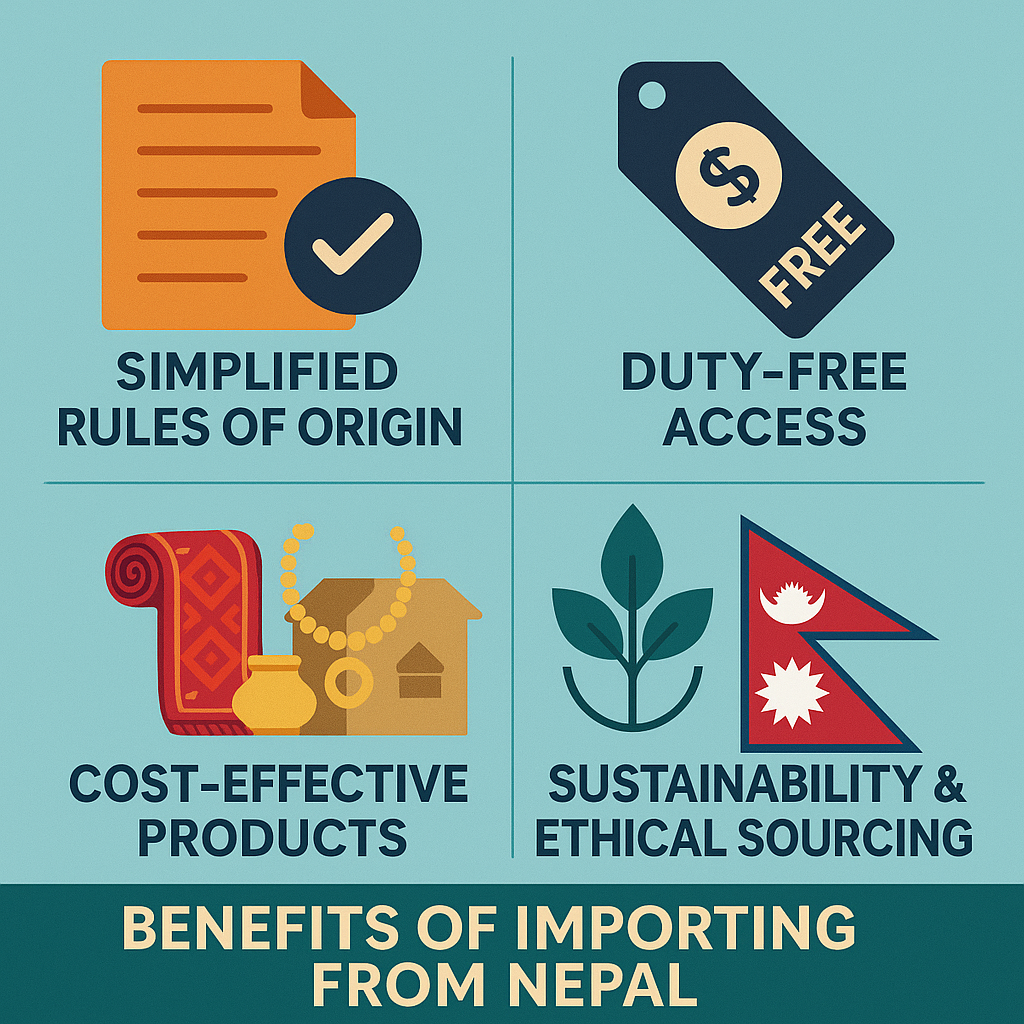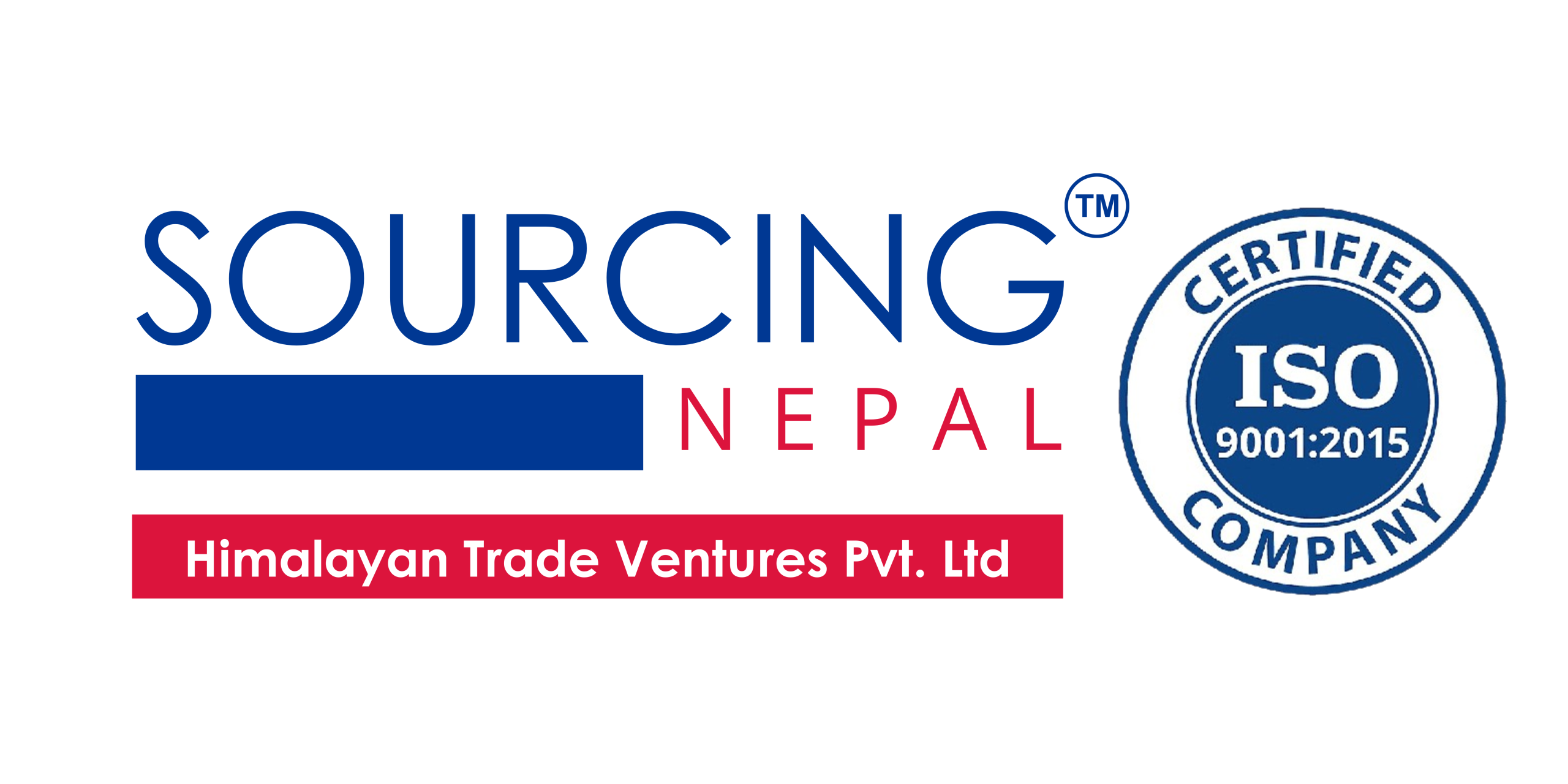- Home
- About
- Products
- Services
- Sustainable, Ethical Sourcing & Compliance
- Production scheduling and Expediting
- Supplier Verification
- Product Testing
- Quality Control
- Sample Development
- Packaging Sourcing & Development
- Drop Shipping & Amazon Fulfillment
- International Logistics
- Impact Reporting
- Branded Merchandise
- Product Photography
- Vendor Enrollment
- Policies
- Blog
- Contact Us
- Home
- About
- Products
- Services
- Sustainable, Ethical Sourcing & Compliance
- Production scheduling and Expediting
- Supplier Verification
- Product Testing
- Quality Control
- Sample Development
- Packaging Sourcing & Development
- Drop Shipping & Amazon Fulfillment
- International Logistics
- Impact Reporting
- Branded Merchandise
- Product Photography
- Vendor Enrollment
- Policies
- Blog
- Contact Us
Importing from Nepal: Key Benefits for Global Buyers
- Sourcing Nepal | Best Sourcing Company in Nepal
- Sourcing Facts
- Importing from Nepal: Key Benefits for Global Buyers

Importing from Nepal: Key Benefits for Global Buyers
Nepal, classified as a Least Developed Country (LDC) since 1971, has enjoyed various international support measures to boost its development. This LDC status offers buyers significant trade advantages, making Nepal an attractive sourcing destination. Even though Nepal will graduate from the LDC category in 2026, buyers can continue benefiting from these advantages through the transition period until 2029. Here’s how importing from Nepal can benefit buyers:
1. Duty-Free and Quota-Free Access
Nepal benefits from preferential market access through various trade schemes under the Generalized System of Preferences (GSP), which include:
• United States GSP: Around 5,000 products from Nepal enjoy duty-free access to the U.S. market, with 1,500 of these products exclusively available to LDCs, such as carpets, jewelry, and agricultural goods.
• Everything But Arms (EBA) Initiative: The EU program offers duty-free, quota-free access to almost all Nepalese products, except arms and ammunition.
• Other GSP Providers: Countries such as Australia, New Zealand, and Japan offer duty-free treatment for a significant portion of Nepal’s exports.
How This Benefits Buyers: Importers benefit from significant savings on tariffs, making Nepalese products more competitively priced on international markets. By avoiding customs duties and other trade barriers, businesses can enhance their profitability while offering customers better prices on high-quality Nepalese products.
2. Simplified Rules of Origin (ROO):
Under GSP schemes, Nepal benefits from relaxed Rules of Origin (ROO) requirements:
• At least 35% of the product’s value must originate from Nepal, including manufacturing and material costs.
• Regional Cumulation: Inputs from SAARC countries (e.g., India, Bangladesh) can be considered as part of the ROO requirements.
• Imported materials qualify if they undergo a “double substantial transformation” during production.
How This Benefits Buyers: These flexible ROO requirements make it easier for businesses to source products from Nepal while remaining compliant with trade agreements. The option to use materials from neighboring countries like India reduces supply chain complexities and provides a broader range of sourcing options for buyer
3. Cost-Effective Products:
Nepal’s economy is heavily reliant on small and medium-sized enterprises (SMEs) that produce high-quality handmade goods, such as
• Carpets, pashmina, jewelry, tea, and spices.
Thanks to lower production costs and exceptional craftsmanship, Nepalese products are competitively priced.
How This Benefits Buyers: Importers gain access to premium handmade goods at affordable prices. Lower production costs in Nepal enable buyers to secure high-quality items without compromising on price. This allows businesses to offer quality products at competitive rates, improving margins and customer satisfaction.
4. Quota Fulfillment: What It Is and How It Benefits Buyers
Quota fulfillment refers to meeting the required quantity of goods that can be imported under specific trade agreements or preferential trade schemes. Many international trade agreements impose quotas on goods imported from certain regions, especially Least Developed Countries (LDCs). These quotas ensure that LDCs like Nepal are able to participate in global trade on fair terms, promoting equitable trade relationships between developed and developing nations.
Importing goods from Nepal allows businesses to meet these import quotas, ensuring they remain in compliance with trade agreements. By sourcing from Nepal, businesses can fulfill their quotas while also supporting the development of Nepal’s economy and helping to promote fair trade practices.
How This Benefits Buyers: By sourcing products from Nepal, buyers can fulfill the specific import quotas set by international trade agreements. This not only helps businesses meet regulatory requirements but also aligns them with global trade initiatives aimed at supporting developing economies. Importing from Nepal can be a strategic move to maintain compliance with quotas while contributing to global development
5. Sustainability and Ethical Sourcing:
Nepal is known for producing eco-friendly products that meet the growing demand for sustainability, such as:
• Handmade paper, organic tea, and medicinal herbs.
These products are often made using traditional techniques that are environmentally friendly, with a focus on minimizing waste and reducing carbon footprints.
How This Benefits Buyers: By sourcing from Nepal, companies can strengthen their corporate social responsibility (CSR) initiatives and sustainability goals. Products from Nepal are not only high-quality but also contribute to fair trade, ethical labor practices, and environmental sustainability. Buyers can meet their sustainability commitments while offering their customers products that align with ethical values.
How This Supports Policy and Sustainability Goals: Importing from Nepal helps companies align with global sustainability trends and regulatory policies. Many buyers are under increasing pressure to demonstrate responsible sourcing practices, and partnering with Nepalese suppliers who emphasize eco-friendly and ethical practices helps them fulfill their sustainability and policy goals.
6. Continued Benefits Post-LDC Graduation:
Even after Nepal’s graduation from LDC status in 2026, preferential trade access will continue:
• Transition Period: Nepal will retain benefits from programs like the EBA and GSP until 2029.
• Specific U.S. Provisions: Some products, such as scarves and mufflers, may continue to enjoy tariff-free access under bilateral trade agreements.
How This Benefits Buyers: The transition period ensures that businesses can continue to benefit from preferential access to Nepalese products at favorable rates, even after Nepal moves away from its LDC status. This smooth transition gives buyers time to adjust their sourcing strategies while still taking advantage of the cost-effective access to Nepalese goods until 2029.
7. Trade-Related Supports and Development Assistance:
Nepal’s LDC status ensures access to specialized trade-related supports, such as:
• Development aid programs and trade-related capacity-building initiatives.
• WTO-backed special and differential treatments.
How This Benefits Buyers: By supporting Nepalese trade, buyers contribute to the long-term development of Nepal’s economy while benefiting from trade-related capacity-building initiatives. These efforts enhance the reliability and consistency of Nepalese exports, fostering stronger, more sustainable business relationships. Buyers who source from Nepal can participate in global development goals, benefiting from the unique support mechanisms available to Nepal as an LDC.
Conclusion
Nepal’s LDC status offers unique advantages for international buyers, ranging from duty-free access and flexible trade regulations to ethical sourcing opportunities. Importing Nepalese products is not only cost-effective but also an opportunity to support global economic equity and sustainability. Even as Nepal transitions out of LDC status, buyers can continue to benefit from preferential trade access and ethically sourced products. For businesses looking to align profitability with purpose, Nepal remains a reliable and exceptional trade partner.
Ready To Import From Nepal?
📧 info@sourcingnepal.com
🌐 www.sourcingnepal.com
Frequently Asked Questions
Nepal’s LDC status allows preferential trade access to markets, including duty-free and quota-free access under programs like GSP and EBA, helping buyers save on tariffs and costs.
Nepalese products benefit from lower production costs due to the country’s reliance on small and medium enterprises, offering buyers access to high-quality products at competitive prices.
Products such as carpets, pashmina, jewelry, agricultural goods, and many others are eligible for duty-free access under various trade programs like the U.S. GSP and the EU’s EBA initiative
Nepal is known for eco-friendly and ethically produced products, such as handmade paper, organic tea, and medicinal herbs, helping buyers meet their sustainability and CSR goals.
Quota fulfillment refers to meeting the specific import quantity set under trade agreements. Importing from Nepal helps businesses meet these quotas while supporting equitable global trade practices and economic developmen
Nepal will continue to enjoy preferential trade access through programs like GSP and EBA until 2029, ensuring that businesses can still benefit from cost-effective and ethically sourced products.
At SourcingNepal, we take pride in being the premier choice for businesses seeking sourcing solutions in Nepal.
Contact Info
Kathmandu, Nepal


